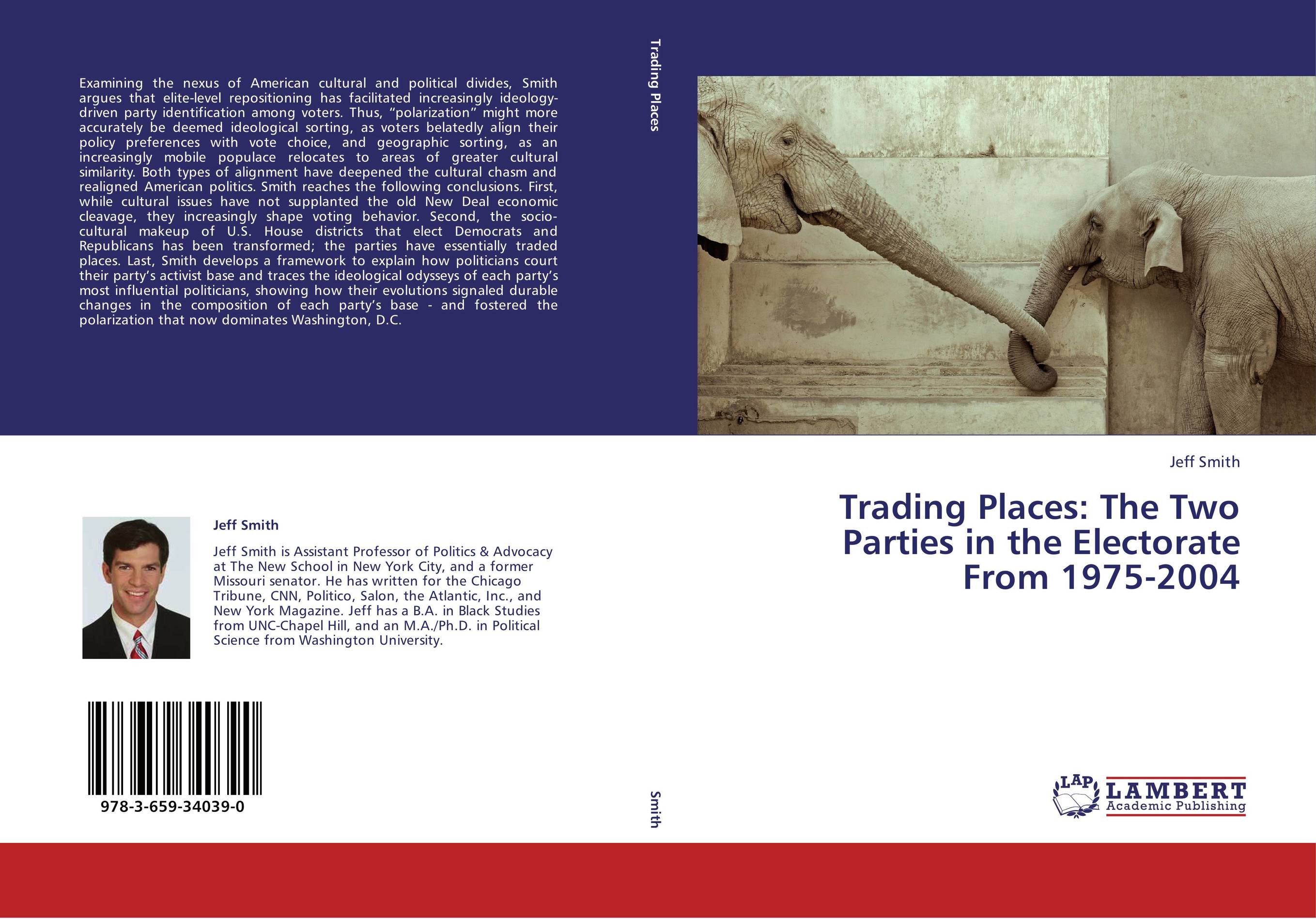| Поиск по каталогу |
|
(строгое соответствие)
|
- Профессиональная
- Научно-популярная
- Художественная
- Публицистика
- Детская
- Искусство
- Хобби, семья, дом
- Спорт
- Путеводители
- Блокноты, тетради, открытки
Trading Places: The Two Parties in the Electorate From 1975-2004.

В наличии
| Местонахождение: Алматы | Состояние экземпляра: новый |

Бумажная
версия
версия
Автор: Jeff Smith
ISBN: 9783659340390
Год издания: 2013
Формат книги: 60×90/16 (145×215 мм)
Количество страниц: 324
Издательство: LAP LAMBERT Academic Publishing
Цена: 59722 тг
Положить в корзину
| Способы доставки в город Алматы * комплектация (срок до отгрузки) не более 2 рабочих дней |
| Самовывоз из города Алматы (пункты самовывоза партнёра CDEK) |
| Курьерская доставка CDEK из города Москва |
| Доставка Почтой России из города Москва |
Аннотация: Examining the nexus of American cultural and political divides, Smith argues that elite-level repositioning has facilitated increasingly ideology-driven party identification among voters. Thus, “polarization” might more accurately be deemed ideological sorting, as voters belatedly align their policy preferences with vote choice, and geographic sorting, as an increasingly mobile populace relocates to areas of greater cultural similarity. Both types of alignment have deepened the cultural chasm and realigned American politics. Smith reaches the following conclusions. First, while cultural issues have not supplanted the old New Deal economic cleavage, they increasingly shape voting behavior. Second, the socio-cultural makeup of U.S. House districts that elect Democrats and Republicans has been transformed; the parties have essentially traded places. Last, Smith develops a framework to explain how politicians court their party’s activist base and traces the ideological odysseys of each party’s most influential politicians, showing how their evolutions signaled durable changes in the composition of each party’s base - and fostered the polarization that now dominates Washington, D.C.
Ключевые слова: Bill Clinton, Democratic Party, U.S. politics, partisan realignment, Republican Party, Al Gore, Dick Gephardt, Bush dynasty, partisan polarization



